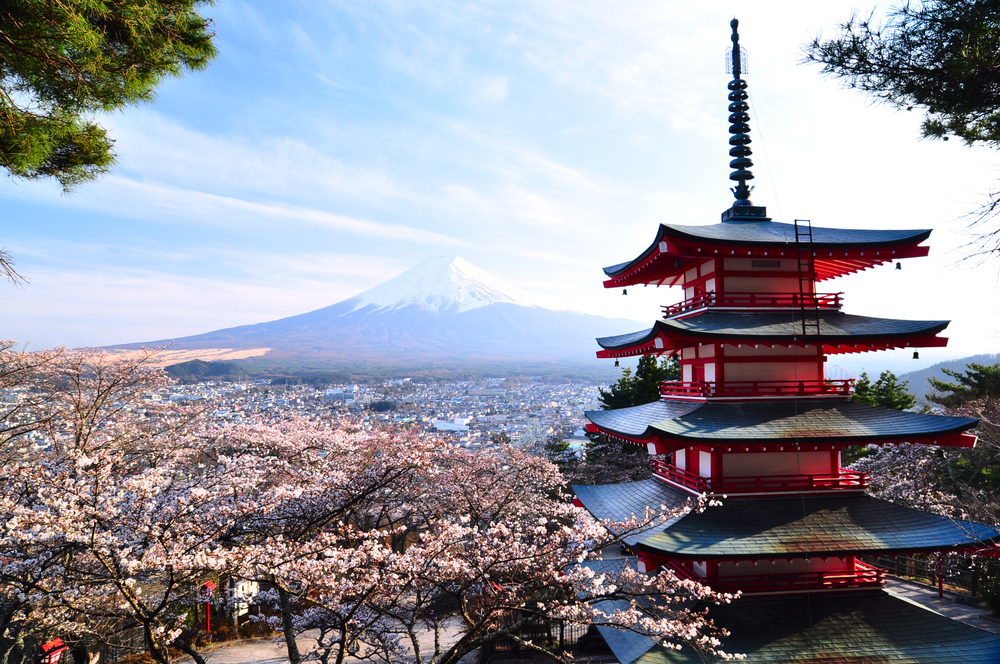Japan Prime Minister Abe’s Historical and Geopolitical Balancing Act

Please note that we are not authorised to provide any investment advice. The content on this page is for information purposes only.
Those who seek reconciliation with Japan’s neighbours and those who would rather paint a picture of a glorious wartime past still tears at Japan. These differences in attitude are never more apparent than between the increasingly nationalistic Liberal Democratic Party (LDP) leadership and the liberal Imperial family.
Those who seek reconciliation with Japan’s neighbours and those who would rather paint a picture of a glorious wartime past still tears at Japan. These differences in attitude are never more apparent than between the increasingly nationalistic Liberal Democratic Party (LDP) leadership and the liberal Imperial family.
Emperor Akihito’s 2015 New Year address asked the people to reflect on the history of the war, starting with the Manchurian Incident in 1931. Following this address in February was a statement from his nominated successor, Crown Prince Naruhito, on the importance of remembering history ‘correctly’. Though both statements appeared vague, Akihito and Naruhito are constitutionally prohibited from involving themselves in diplomatic questions without the permission of the elected government. Therefore, Jeff Kingston of Temple University has suggested that their statements need to be considered in light of Akihito’s wartime responsibility track record.
Akihito has often expressed wishes to visit South Korea, a country to which he claims ancient family ties. In 2012, he said that in connection to a trip he would like to offer an apology for the atrocities that were committed in Korea under Japanese colonial rule. In response, the former South Korean president Lee Myung-bak claimed that if the Emperor wished to visit, he would have to sincerely apologise. If this had not happened, perhaps such a visit could have occurred. Instead, there was another heated battle of words between Korean and Japanese nationalists.
Since taking office in 2012, Prime Minister Shinzo Abe has had to balance the demands of interest groups on the far right against the need to uphold normal relations with Japan’s neighbours. But the nationalist right has a growing influence over Japanese foreign policy. Abe’s re-examination the 1993 Kono Declaration, which apologised for the Japanese military’s use of so-called ‘comfort women’ during the war, despite the diplomatic tensions this has caused with South Korea and China is one example of this influence. Abe has close ties to right-wing organisations such as the Nippon Kaigi and the Japan War-Bereaved Families Association (Nihon Izokukai), and therefore he has to remain adamant in his criticism of a ‘masochistic’ view of history. According to one recent survey, this has now made Abe less popular in South Korea than Kim Jong-Un.
The ideological break between the Emperor and the nationalist right has been a long time coming. The Showa Emperor, Hirohito, visited the controversial Yasukuni Shrine in Tokyo a number of times, but stopped after the ‘heroic spirits’ of 14 Class A war criminals were enshrined there in 1978. Despite ongoing lobbying from right-wing groups, such as the Izokukai, Hirohito never returned to the controversial shrine and his successor Akihito has stayed true to this policy. In 2014, the Fukuoka Izokukai made a bid to move the spirits of the Class A war criminals to a separate location in order to encourage the Emperor to visit the shrine again.
The liberal views of the Emperor have caused problems for the right wing of the LDP for some time but the party has to remain respectful of the Emperor as many nationalist groups consider him central to Japanese tradition. This is despite the fact that the Emperor’s own views are often different from those of the nationalist right. For instance, in 2004, LDP politician Kunio Yonenaga, in a bid to express his love for the nation, told the Emperor that it was his job ‘to get all schools in Japan to hoist the national flag and sing the national anthem’. The Emperor’s response was simple — ‘it is not desirable to do so’.
More recently in April 2013, Abe surprised the Emperor at a ceremony commemorating the 60th anniversary of the end of the American occupation, when the prime minister — along with many members of the LDP — broke out in the pre-war salutation Tenno heika banzai!(Long live the Emperor!) It is unlikely that Akihito had expected to hear this.
The LDP’s 2012 draft for a revised constitution proposes that presents the Emperor not only as the ‘symbol’ (shouchou) of the state, but also as the ‘head of state’ (genshu). This is a term absent from the current constitution, used only in the Constitution of Imperial Japan. While symbolically significant, the change does not alter the de facto political role of the Japanese emperor. It mirrors the ambivalent relationship that many nationalist organisations have with Emperor Akihito. To groups such as the Nippon Kaigi, the symbol of the emperor is central to their nationalist ideology, but since the personal ideals of Akihito himself are contrary to those of the organisation, it is not desirable for them to offer the Emperor a stronger influence over policy-making.
The Emperor, though seemingly critical of the nationalist narrative on Japan’s wartime history, is constitutionally obliged to remain outside of politics. It is therefore ironic that the Emperor, despite his liberal view, retains his position at the apex of the nationalistic discourse of the Abe government.
Gap widens between the LDP and Japan’s liberal Emperor is republished with permission from East Asia Forum




